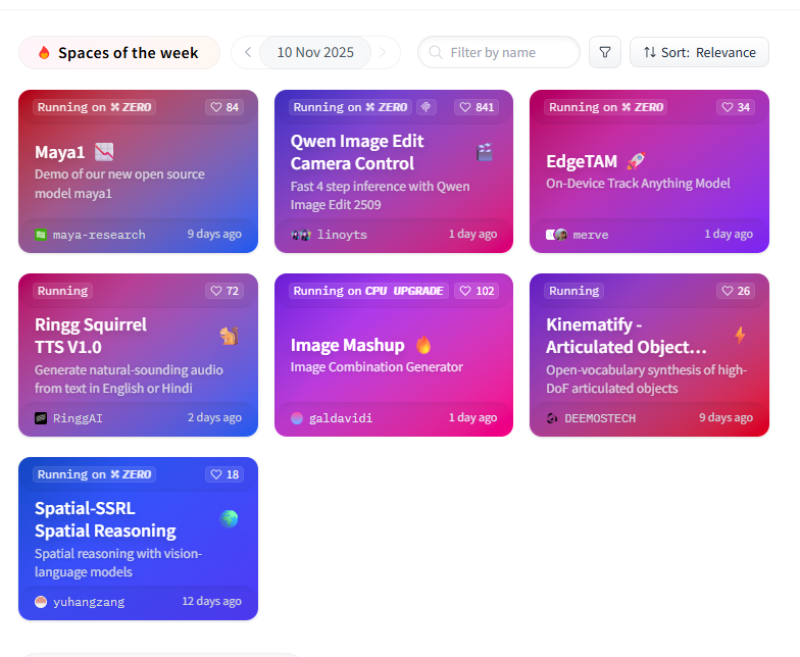⬤ Alibaba's Qwen ecosystem is making serious waves on HuggingFace, with several Qwen projects landing in the top "Spaces of the Week." China's moving fast in open-source AI, and Qwen's become the poster child for this push. Top performers include Qwen Image Edit Camera Control pulling over 800 likes, plus a bunch of other China-built or Qwen-compatible models. This visibility bump puts Alibaba squarely in investors' crosshairs as the AI race heats up.

⬤ The HuggingFace data shows China-linked AI projects holding multiple top spots, proving the competition in open-source development is intensifying. Projects like Qwen Image Edit, Maya1, EdgeTAM, and Spatial-SSRL showcase China's range across multimodal editing, spatial reasoning, on-device vision, and generative tools. China's not just dominating popular Spaces—they're also climbing open-LLM performance rankings that U.S. developers used to own.
⬤ This lines up with growing market buzz around Alibaba's AI game plan, especially as Qwen models catch on with developers worldwide. Seeing Qwen projects running on HuggingFace's premium tiers like Zero compute proves these models can scale and compete technically. There's chatter that the U.S. is "losing the open-source race" as restrictive licensing and slow releases from American AI firms might be handing ground to China's more open distribution approach.
⬤ Qwen's rising influence on HuggingFace matters for AI leadership, cloud wars, and the future of open-source development. As China's AI models gain momentum, market talk increasingly centers on how fast these open ecosystems are evolving—and what that means for valuations, competitive strategies, and who shapes the AI landscape going forward.
 Usman Salis
Usman Salis

 Usman Salis
Usman Salis


